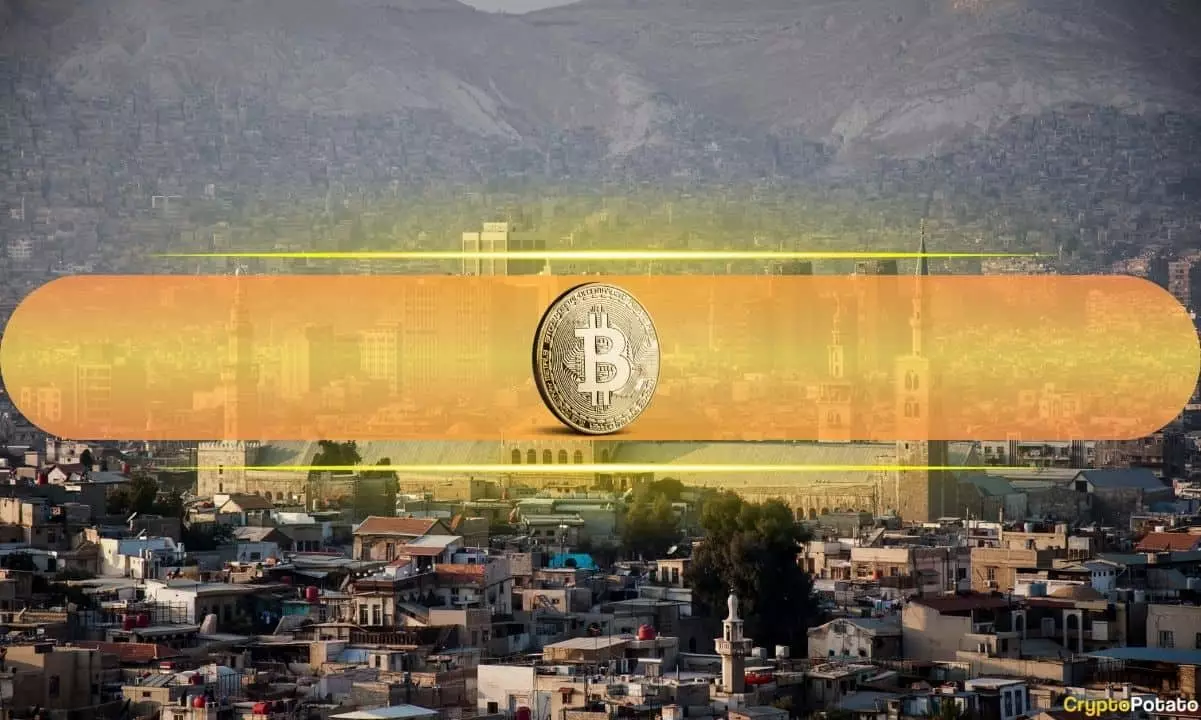In the wake of severe economic turmoil, the Syrian Center for Economic Research (SCER) has proposed a groundbreaking strategy aimed at revitalizing Syria’s economy through the legalization of Bitcoin. As the country grapples with hyperinflation and rampant currency devaluation, the initiative seeks to introduce a robust digital economy by digitizing the Syrian pound, thus fostering both centralized and decentralized banking systems within the nation. This proposal, if embraced, could signify a pivotal transformation of Syria’s economic landscape, offering hope for recovery in a nation long plagued by conflict.
The SCER’s proposal provides a detailed regulatory framework intended to facilitate the legal exchange, trading, and mining of Bitcoin and other digital currencies. This legal recognition not only aligns with international best practices but also positions Syria to tap into the burgeoning global cryptocurrency market. Central to this strategy is the blockchain-based digitization of the Syrian pound, which is proposed to be backed by tangible assets such as gold. This methodology is critical for ensuring trust and stability among users, as the current economic instability has left many wary of the local currency. By involving the central bank and relevant regulatory bodies, such a shift aims to enhance transparency and security in financial transactions.
The proposal’s emphasis on stability and attraction of foreign investment is particularly significant in Syria’s context. With many investors currently hesitant to engage in a geopolitically volatile region, the integration of a regulated digital currency could serve as a confidence booster. It promises not only to stabilize the local economy by curbing rampant inflation caused by years of war but also to reinvigorate local markets. The SCER asserts that by creating an inviting regulatory environment, foreign entities may begin to see potential prospects in the Syrian economy, thereby fostering a much-needed influx of capital.
A noteworthy aspect of the SCER’s initiative is its commitment to empowering local entrepreneurs. By promoting a free-market environment that breaks the chains of monopolistic practices, the proposal aims to encourage innovation among Syrian citizens. Additionally, the focus on fostering private property rights and permitting citizens full control over their digital assets lends itself to cultivating an entrepreneurial spirit, which is essential for a country seeking to redefine its economic identity. Such a shift may unlock a wave of creativity and technological advancement, vital for long-term economic sustainability.
Despite the potential benefits, the SCER recognizes significant challenges ahead. Chief among these is the lack of necessary technological infrastructure, which is critical for implementing a digital banking system. Furthermore, public awareness regarding cryptocurrencies in Syria remains notably low, which could impede adoption. Additionally, the ongoing geopolitical challenges that have historically stalled Syria’s recovery cannot be overlooked. The SCER has expressed concern that the transitional government currently prioritizes more immediate issues and is unlikely to consider this proposal promptly.
Compounding these challenges is the current political climate. The new Syrian Foreign Minister, Asaad Hassan al-Shibani, has echoed the SCER’s sentiments, urging for an urgent lifting of international sanctions. Originally imposed to disrupt the Assad regime’s oppressive practices, these sanctions may now inadvertently obstruct the efforts of the transitional government to facilitate recovery and growth. With many political detainees freed and the regime reshaped, Al-Shibani argues that it is time for the international community to reassess the effectiveness of these measures, as they now disproportionately affect ordinary citizens striving for stability.
While the revolutionizing proposal from the SCER has the potential to reshape Syria’s economic future, it will require collective efforts from local stakeholders and the international community. The success of such an initiative hinges not only on technological advancements but also on political will and the lifting of sanctions that hinder economic revival. As Syria stands at the crossroads of recovery, embracing innovative financial strategies and fostering collaboration could pave the way for a brighter economic horizon. This transition, albeit fraught with challenges, represents a beacon of hope for a war-torn nation seeking new beginnings.

